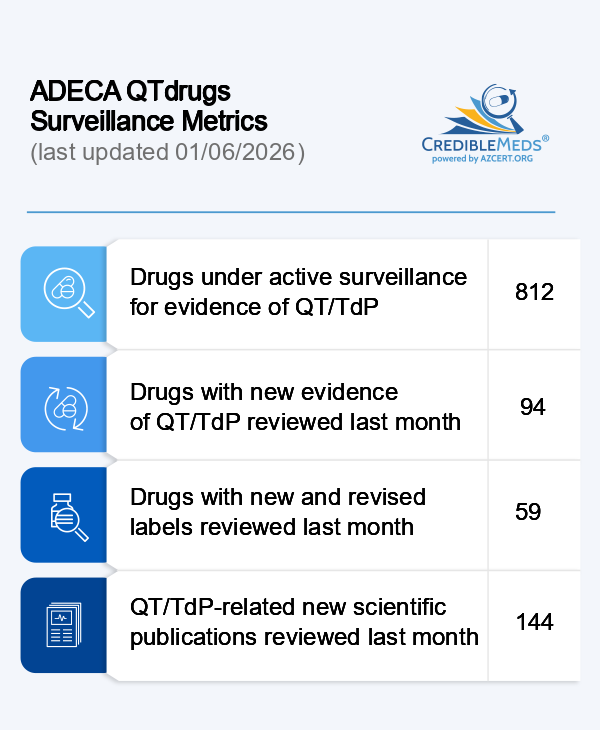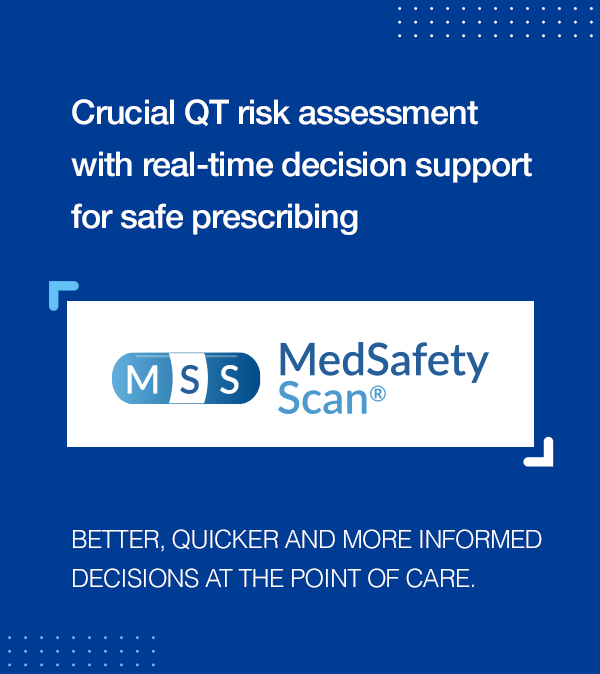Research reported in the May issue of the Journal of Circulation: Cardiovascular Quality and Outcomes found that a computerized clinical decision support system (CDSS) reduced the risk of QT prolongation in 1200 patients admitted to the Coronary Care Units (CCU) at an academic medical center. Using the list of QT prolonging drugs from the CredibleMeds website and patient information in the electronic health records, the CDSS automatically generated a risk score for QT prolongation and issued alerts to pharmacists (high risk or moderate risk). By comparing patient outcomes before (n=1200 patients) and after instituting the alerts (n=1200), the investigators found a significantly reduced risk of QT prolongation in patients admitted to the CCU.
Furthermore, the CDSS implementation reduced the prescribing of non-cardiac medications known to cause torsades de pointes (TdP), including fluoroquinolones and intravenous haloperidol. The CDSS also reduced the prescribing of QT prolonging drugs for patients with pre-existing QT interval prolongation. The authors conclude that their study supports the need for a prospective study to determine if a CDSS that reduces the risk of QTc prolongation can also reduce the incidence of TdP and sudden cardiac death.
Tisdale, JE, et al, Effectiveness of a Clinical Decision Support System for Reducing the Risk of QT interval Prolongation in Hospitalized Patients, Circ Cardiovasc Qual Outcomes, published online May 6, 2014.











